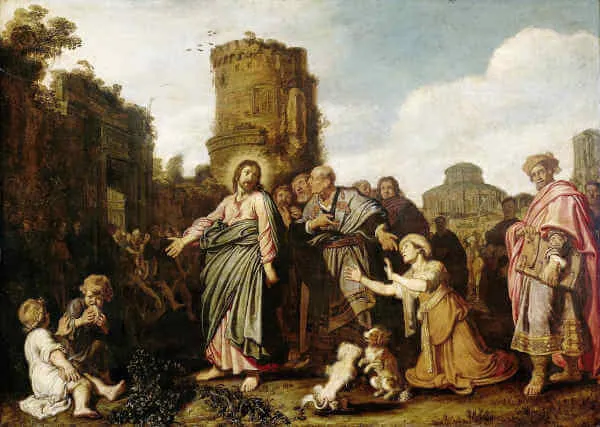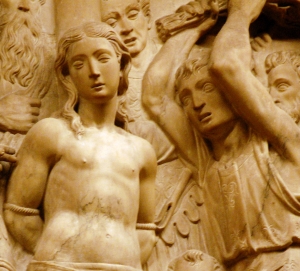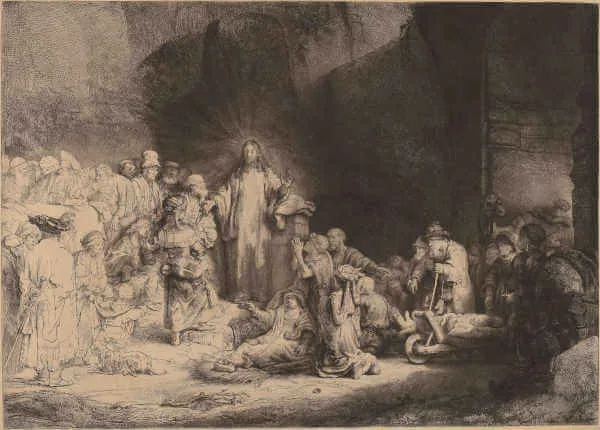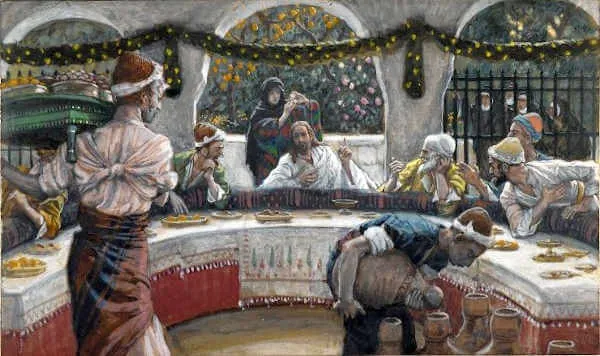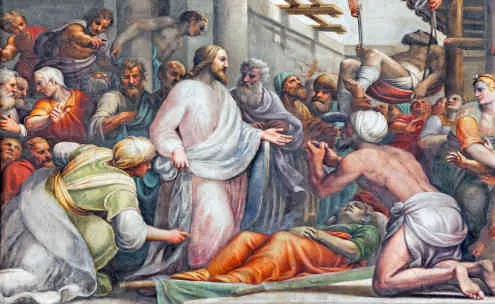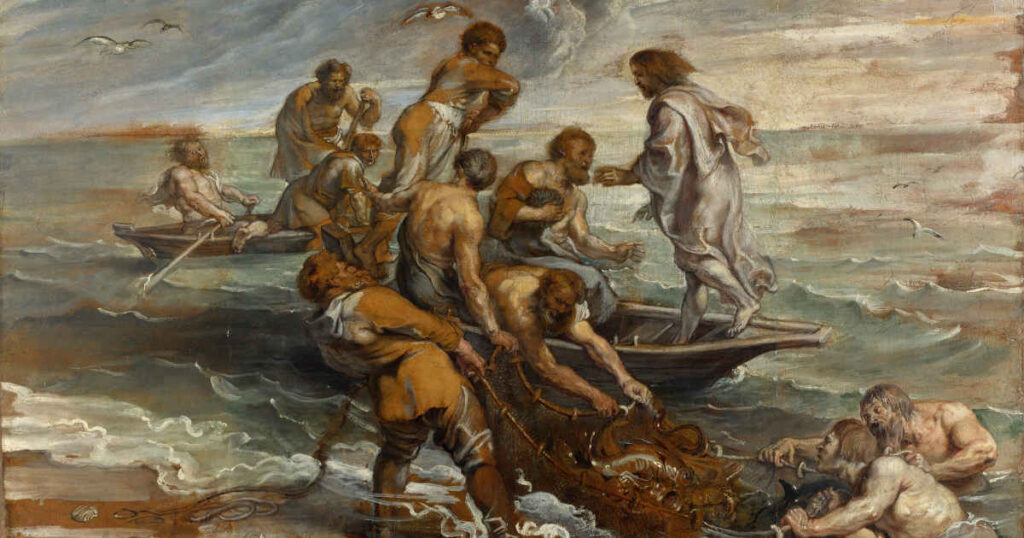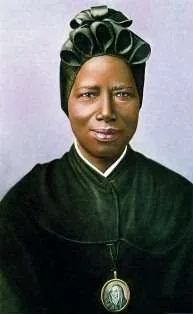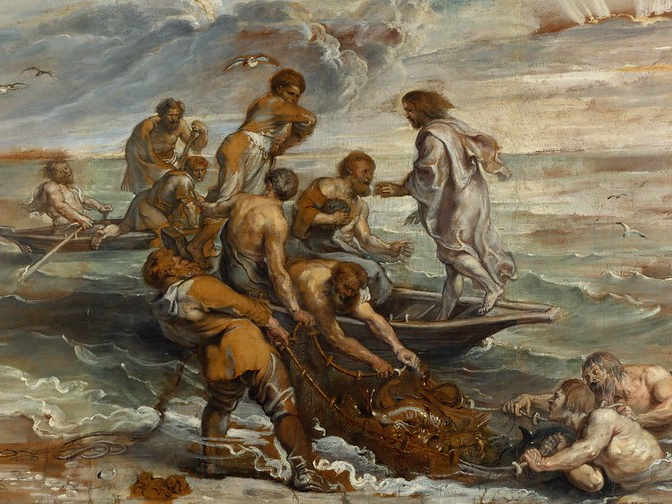In 1869, a daughter was born into a loving and well-respected family in western Sudan, in a village of the Daju tribe. Until the age of six, she and her three brothers and three sisters lived a happy and carefree life. That would all change around the year 1875 when one sister was abducted by Arab slave traders. Two years later, she also became their victim. When her captor asked her name, she couldn’t remember so she didn’t respond. She might have forgotten her given name due to the trauma she faced. Her captor sarcastically gave her the name “Bakhita,” which means “fortunate,” claiming that he would bring her good luck.
After her captivity, Bakhita was forced to travel hundreds of miles on foot to the city of El-Obeid. On her journey, she was bought and sold more than once, and over the next several years she was bought and sold several more times.
During Bakhita’s captivity, she was forced to convert to Islam and was continually abused. She was beaten most days, one time so severely that she could barely move for more than a month, and she often was bound firmly with chains to prevent her escape. On her deathbed, she would still have painful memories of those chains. One of the worst tortures she endured was the customary scarring of her breasts, belly, and arm with a sharp razor. Once the wound was inflicted, salt was then ground into it, causing permanent scarring and identifying the person as property.
Around the age of thirteen, the city in which she lived, El-Obeid, was threatened by revolutionaries. Bakhita’s owner, a Turkish general, decided to sell his slaves and return to his homeland. Bakhita was sold to an Italian Vice Consul working in the city of Khartoum, named Callisto Legnani. For the next two years, Callisto treated Bakhita well, despite her being his slave. As a result, when the revolutionaries began to make advancements on the city and Callisto made plans to escape to save his life, Bakhita begged him to take her with him, preferring his kindness over a new owner. He did so and, with the help of a friend named Augusto Michieli, they safely arrived in Italy. Upon their arrival, Callisto gifted Bakhita to Augusto and his wife Maria.
In the Michielis’ home, Bakhita continued to be treated well, working as a nanny for their newborn daughter. Three years later, the Michieli family decided to move back to Sudan for business reasons and sold their property in Italy. During the transition, they entrusted Bakhita and their young daughter to the care of the Canossian Sisters in Venice. It was with those loving sisters that Bakhita was introduced to Jesus Christ, her true Master, and began her formation in the Catholic faith.
Within the Catholic faith, Bakhita began to discover the God Whom she had sensed in her heart from childhood. Through the sisters’ teaching and virtuous witness, Bakhita began to understand Who this great God is and to love Him all the more. When the Michielis returned to take their daughter and Bakhita to Sudan, Bakhita refused to go with them. After days of trying to convince her, the Canossian Sisters involved the civil authorities, and in 1889, an Italian court ruled in Bakhita’s favor, declaring her free. She stayed with the sisters and on January 9, 1890, she was baptized, confirmed, and given her First Holy Communion by the Archbishop of Venice (later, Pope Pius X). She was given the baptismal name Josephine Margaret Fortunata, “Fortunata” being the Latin translation of the Arabic name “Bakhita.” Thus, at the age of twenty-one, this fortunate young girl was flooded with God’s grace, and her formerly abused body and soul began a transformation. Josephine stayed with the sisters, entered their novitiate in 1893, and made her vows in 1896, becoming Sister Josephine Margaret Fortunata.
In 1902, Sister Josephine was assigned to the convent in Schio in northern Italy where she spent the rest of her life. In that convent, she was given the responsibilities of welcoming guests as the doorkeeper and worked as a cook and sacristan. She became well known and well loved by the locals for her beautiful and warm smile, kindness, and calm demeanor. Many of the people affectionately referred to her as the “black mother.” She evangelized through her virtues and evident love of God and did not shy away from sharing her story, including her merciful heart that forgave her abusers. She served the people of God and grew in holiness in that convent for forty-two years.
At the end of her life, Sister Josephine suffered again, this time from illness. On her deathbed, she relived the horrors of her captivity but now confronted those horrors with God’s grace. Her last words were cries of love for our Blessed Mother. After her death, her effect upon the people of God was evident as she lay in state for three days while countless faithful came to express their love for her. Shortly after her death, cries for her canonization stirred among the faithful. Twelve years later, her cause for canonization was opened, and she was canonized by Pope John Paul II during the great jubilee year of 2000 in Saint Peter’s Square. Three years after her canonization, Pope John Paul II made an official visit to Khartoum, Sudan, honoring her on her home soil.
Saint Josephine was more than fortunate; she was greatly blessed by God. Later in life she not only forgave her captors, she also expressed her gratitude to them because God used their cruelty to lead her into the Catholic faith and consecrated life. Her witness reveals that God is all-powerful. He is able to take the worst and bring from it the best. He is able to transform tragedy into grace, abuse into mercy, hatred into love.
Ponder any way that you have been mistreated in life. If you find yourself angry or bitter, turn to this great saint and let her witness inspire you. In the end, she never lost hope. That hope led her from the cruelty of earthly masters to a holy slavery in the service of the divine King. If you find yourself bound by earthly masters, sins, or abuses, turn to the One Who promises complete liberation. Jesus must become our Master, and Saint Josephine shows us the way.
Source: https://mycatholic.life/saints/saints-of-the-liturgical-year/february-8-saint-josephine-bakhita-virgin/


